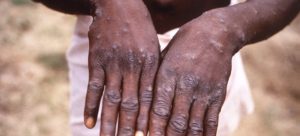In 2024, Haiti’s multidimensional crisis reached catastrophic levels. Criminal groups united under the “Viv Ansanm” coalition intensified large-scale and coordinated attacks that brought the country to a standstill from February to May, and from October to the present. These attacks severely impacted public services, including electricity, water supply, sanitation, health care, education, and transportation, significantly restricting access to essential goods. Half of Haiti’s population struggled daily to afford food, giving the country one of the highest rates of acute food insecurity in the world.
Killings and kidnappings by criminal groups increased, with a weak state response and an ineffectual justice system. Sexual violence became widespread, with survivors having minimal access to health services and a near-absence of justice. Rising hunger and extreme poverty have forced children to join criminal groups, where they face abuse, including sexual exploitation.
A new transitional government, led by a prime minister and a Transitional Presidential Council, was established with the aim of strengthening security and organizing free and fair elections. However, political instability persisted, with several members of the transitional presidential council facing corruption allegations, and scant progress in establishing an electoral calendar.
The transitional prime minister was abruptly dismissed by the Transitional Presidential Council along with his government in early November and a new prime minister, Alix Didier Fils-Aimé was appointed.
As violence escalated, the United Nations-authorized Multinational Security Support (MSS) mission began deployment but was unable to effectively support the police in fighting criminal groups due to a lack of funding and personnel. The transitional government requested that the UN Security Council and the UN Secretary-General transform the mission into a UN peacekeeping operation.
Violence by Criminal Groups
United Nations agencies reported that criminal groups control around 85 percent of Port-au-Prince, Haiti’s capital and its metropolitan area. These groups have rapidly expanded into previously secure areas of Port-au-Prince, as well as key regions such as the Ouest and Artibonite departments, Haiti’s agricultural hub. Many of these groups have alleged ties to police officers and political and economic elites.
In June, the MSS mission, led by Kenya, began operations. Jamaica, Belize, and the Bahamas have contributed a small number of personnel, bringing its total personnel to only 416 officers, far below the expected 2,500, by early December. The mission has participated in some patrols and anti-crime operations with the Haitian police, and has developed important human rights safeguards and monitoring and accountability mechanisms, but the mission remains in the pre-deployment phase and continues to face significant financial and logistical challenges.
During the UN General Assembly session in late September, Haiti’s transitional presidential council requested transforming the MSS mission into a UN peacekeeping operation to secure stable funding, expand capabilities, and strengthen UN Member States’ commitments to security in Haiti. This call has been backed by the US, the lead funder of the MSS, as well as Kenya and the Organization of American States (OAS), among others. In November, the UN Security Council asked the UN Secretary-General to present recommendations for the role the UN could play in helping address the security, economic, and humanitarian crises in the country.
The UN, the European Union, Canada, and the US have taken measures against former Haitian officials and criminal groups, including an arms embargo and targeted sanctions. Two pieces of legislation have also been introduced in the US Congress aimed at addressing the illegal arms flows to Haiti. Yet international efforts, particularly financial support to the MSS, remain insufficient.
The UN High Commissioner for Human Rights reported that criminal groups killed at least 5,601 people and kidnapped nearly 1,500 in 2024.
Sexual violence has escalated, becoming widespread. Survivors face severely limited or nonexistent access to protection and care services. Between January and October, the Gender-Based Violence (GBV) sub-cluster reported 5,400 cases of gender-based violence, with 72 percent involving sexual violence allegedly committed mostly by members of criminal groups.
Children are among the hardest hit by the violence. Rising hunger and severe poverty have forced hundreds, possibly thousands, of children to join criminal groups, where they are coerced into illegal activities and face abuse, including girls facing labor and sexual exploitation. According to the UN, approximately half a million children live under the control of these groups, with at least 30 percent of their members being children.
Despite the appointment of a new director general in the police and contributions from Haiti’s partners, such as funding, equipment and arms, the police continue to face financial, logistical, and staffing shortcomings to protect people from criminal violence, exacerbated by the flow of weapons and ammunition to Haiti, largely from the US state of Florida.
As of September, the so-called “self-defense” groups have reportedly killed over 260 individuals suspected of links to criminal organizations, often in collusion with the police, and have also adopted its tactics, such as extortion, according to the UN.
Economic, Social, and Cultural Rights
The security crisis and political instability have compounded a dire humanitarian situation. According to the World Bank, over 64 percent of Haiti’s population of 11.7 million lived on less than US$3.65 per day in 2024.
The World Food Program has identified Haiti as having one of the highest proportions of acutely food insecure people in any crisis worldwide, in a report covering August 2024 to February 2025. About 5.5 million people require humanitarian assistance and 5.4 million are facing acute food insecurity, including 2 million experiencing emergency levels, and 6,000 people in catastrophic levels of hunger and a collapse of their livelihoods.
Criminal violence and environmental hazards have severely disrupted economic activities, leading to significant losses in agricultural activities and other livelihoods. These challenges have further deepened poverty and increased unemployment across the country.
Only 40 percent of Haitians had access to electricity, but intermittently and at high prices. Forty-five percent of the population lacks access to clean drinking water, and 7 out of 10 people do not have access to an improved sanitation system, aggravating the spread of cholera. As of October, the Ministry of Public Health and Population reported 87,382 suspected cases of cholera and 1,306 deaths since the beginning of the ongoing outbreak in October 2022.
Haiti’s health system is on the verge of collapse. About 20 percent of health facilities remain operational, with just 40 percent functioning nationwide. Over 40,000 health workers fled the country due to violence, according to the UN Integrated Office in Haiti (BINUH). As the system crumbles under violence and instability, two out of five Haitians do not have access to urgently needed medical care.
Médecins Sans Frontières (MSF), which has provided health care in Haiti for over 30 years, suspended its operations in the capital in late November, due to attacks by “self-defense groups” on its ambulances, patients, and staff, as well as threats of death and rape against its personnel by some police officials. By the time of writing, MSF had only managed to restore the provision of some of their medical services.
Nearly half of Haitians aged 15 and older are illiterate. According to UNICEF, Haiti has around 3.9 million school-aged children. However, escalating violence led to the closure of nearly 1,000 private and public schools in the West and Artibonite departments during the 2023-2024 academic year, affecting 300,000 students. Moreover, the poor quality of public education, high private school fees, and criminal attacks on students and schools have deprived approximately 1.2 millionHaitian children of access to education.
Transitional Government and Elections
Following a political dialogue led by CARICOM, an intergovernmental organization in the Americas, The Caribbean and Atlantic Ocean, then-Prime Minister Ariel Henry resigned in late April, leading to the establishment of a Transitional Presidential Council. Garry Conille, former UNICEF Regional Director, was subsequently appointed as prime minister in late May. After five months in office, the Transitional Presidential Council dismissed Conille and replaced him with Alix Didier Fils-Aimé, a Haitian businessman.
The transitional government is tasked with restoring security, upholding the rule of law, urgently addressing the humanitarian crisis, and preparing for free and fair elections in 2026. Haiti has had no nationally elected officials since January 2023, and its parliament has been inactive since 2019.
The Provisional Electoral Council, tasked with organizing the elections, was established but had not yet set an electoral calendar at the time of writing.
Justice System
The justice system remains at a near standstill, largely due to corruption, ongoing violence and frequent strikes by magistrates and judicial staff. Criminal groups have seized control of the main court buildings for over two years, and few measures have been taken to relocate the courts or provide security for judicial officials.
From October 2023 through October 2024, only 241 people received criminal trials countrywide, the non-governmental National Human Rights Defense Network (RNDDH) reported. Accountability for past and ongoing human rights violations, including massacres and sexual violence, remains nearly nonexistent. In a rare positive development, in late July 2024, a judge sent to trial 30 individuals, including former police officer and current criminal leader Jimmy Chérizier, for their alleged involvement in the 2018 La Saline massacre, which resulted in over 70 people killed, nearly a dozen women and girls raped, and the vandalization and burning of more than 150 homes.
In early January, another judge charged 51 individuals in connection with the assassination of the former president Jovenel Moïse. In the US, at least seven individuals have been sentenced in connection with the assassination and five more are scheduled to face trial in January 2025.
After criminal groups attacked two major prisons in Port-au-Prince and nearly 5,000 detainees, including several gang leaders, escaped, the Office of the United Nations High Commissioner for Human Rights in Haiti (OHCHR) reported a rise in threats and attacks against journalists, human rights defenders, and government officials.
As of October, Haiti’s prisons held nearly three times their capacity for detainees. Most of the 7,581 detainees—84 percent of whom were awaiting trial—were living in inhuman conditions, without access to adequate food, water, or health care. From January through October, 168 detainees died, most from malnutrition-related diseases.
In 2020, by presidential decree, new penal and criminal procedure codes which expanded alternatives to pretrial detention were adopted. Authorities postponed the implementation of the codes, expected to come into force in 2024.
Police Conduct
Between January and September, police allegedly killed over 900 people and injured nearly 600 in operations, according to BINUH, some were reportedly killed or injured due to excessive use of force. The prosecutor in Miragoâne acknowledged that he was involved in 26 cases of extrajudicial executions; however, authorities are yet to investigate these cases.
The police internal affairs office opened 139 investigations, including 34 for alleged human rights violations from January through early October. Twenty-six investigations were completed, leading to 15 administrative decisions. Only two were sent for criminal prosecution.
Access to Abortion
Haiti has a total ban on abortion. The new penal code will decriminalize abortion until the twelfth week of pregnancy, and at any time in cases of rape or incest, or when the mental or physical health of the pregnant person is in danger. The code was scheduled to come into force in 2024 but has been postponed by authorities.
Disability Rights
Haiti acceded to the Convention on the Rights of Persons with Disabilities in 2009, yet its legal framework still contains discriminatory provisions. According to the UN, 15 percent of the population has a disability, but no census has been conducted since 2003, according to the UN Population Fund. People with disabilities face significant barriers to accessing essential services and experience pervasive stigma.
BINUH, the Bureau du Secrétaire d’État à l’intégration des Personnes Handicapées, and local advocacy groups have raised alarms about the impact of criminal violence on people with disabilities.
Internal Displacement and Migration
Nearly 703,000 Haitians, 25 percent children, are internally displaced. The total is more than double the 2022 figure, making Haiti the country with the highest global displacements per capita, due to crime-related violence, according to IOM. Most of the displaced live in informal settlements with insufficient access to food, water, sanitation, shelter, and medical care. Seventy five percent of these sites are located in areas controlled by criminal groups or high-risk zones, increasing their exposure to violence, according to the UN.
Many Haitians have fled the country, often through dangerous routes. From January through mid-December 2024, foreign governments returned nearly 200,000 people to Haiti despite the risk to their lives and physical integrity and the United Nations High Commissioner for Refugees’ call to extend refugee protection to Haitians under the 1984 Cartagena Declaration. The Dominican Republic was responsible for 97 percent of returns, while the US, the Bahamas, Turks and Caicos, and Cuba account for the rest.
In June, the US government extended Temporary Protected Status (TPS) for Haitians for 18 months, but Haitians continue to face challenges accessing the humanitarian parole program. Both Haitians with criminal convictions and those arriving after a cut-off date of July 2024 for temporary protected status were subject to removal to Haiti. Since October 2023, the US Coast Guard has intercepted 857 Haitians at sea and returned them to Haiti.
Source: https://www.hrw.org/world-report/2025/country-chapters/haiti




